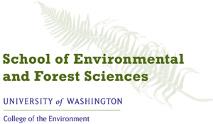
|
Current Issues in Restoration Ecology and Environmental Horticulture |
|
Journal Club (Winter 2017) |
|
Welcome! We meet on Fridays from 4-5 pm in DRC 103. Discussions are facilitated by: · Jon Bakker · Kern Ewing · Jim Fridley · Soo-Hyung Kim
Important Course Logistics and Expectations: · In week 1, sign up for leading a discussion. · As it approaches your week to lead, a. Consult with at least one faculty to get your paper approved by the Friday prior to your discussion b. Once approved, send your paper to Jon by noon Monday for posting on the web c. Send discussion questions to course email list by noon Wednesday. · Sign in each week as you participate in the discussion a. Should you miss a discussion, please email one of the faculty with your own summary and discussion questions of the week prior to your absence to receive credit for participation. b. Alternatively, you may post your summary and questions on the discussion board below.
Course email list: sefs503a_wi17@uw.edu. Please use your UW account! If you do not use your UW account, delivery will be delayed until the email has been approved.
Discussion Board A discussion board for Journal Club is available here. It can be used in many ways: · Weekly leaders can post questions or comments before class to guide our reading (and the in-class discussion). · People can continue discussions beyond class time. · Folk that have to be in the field or are sick can still participate. · Folk can post relevant articles. |

|
Date |
Leaders |
Topic |
Reading |
Notes |
|
1/6 |
Sage |
Assisted migration |
Student responsibilities and expectations document is here. |
|
|
1/13 |
Kyle |
Genetics |
|
|
|
1/20 |
Joanna |
Human health |
|
|
|
1/27 |
Joe |
Phragmites |
|
|
|
2/3 |
Elby |
Non-native species |
Last names A-E: Sagoff. 2005. Do non-native species threaten the natural environment? Journal of Agricultural and Environmental Ethics 18:215-236. Last names F-Z: Simberloff. 2005. Non-native species do threaten the natural environment! Journal of Agricultural and Environmental Ethics 18:595-607. |
|
|
2/10 |
Derek |
Non-native species II |
|
|
|
2/17 |
Alex |
Herbicides |
Wagner et al. 2017. Herbicide usage for invasive non-native plant management in wildland areas of North America. Journal of Applied Ecology 54:198-204. Note: PDF includes supplementary materials. |
|
|
2/24 |
Kimmy |
The restoration economy |
BenDor et al. 2015. Defining and evaluating the ecological restoration economy. Restoration Ecology 23:209-219. Note: PDF includes supplementary materials. |
|
|
3/3 |
|
|
SEFS Graduate Student Symposium |
|
|
3/10 |
Jiawei |
Boundary work |
|
|
|
|
|
|
|
|
|
|
|
|
Previous Schedules |
|
|
|
2016-17 |
|
|
|
|
|
2015-16 |
|||
|
|
2014-15 |
|||
|
|
2013-14 |
|||
|
|
2012-13 |
|||
|
|
2011-12 |
|||
|
|
2010-11 |
|||
|
|
2009-10 |
|||
|
|
2008-09 |
|||
|
|
|
|
|
Contact: sefs503@uw.edu |
|
Use of this website indicates that you have read and agree to the University of Washington’s Online Privacy Statement and Website Terms and Conditions of Use. |
||||